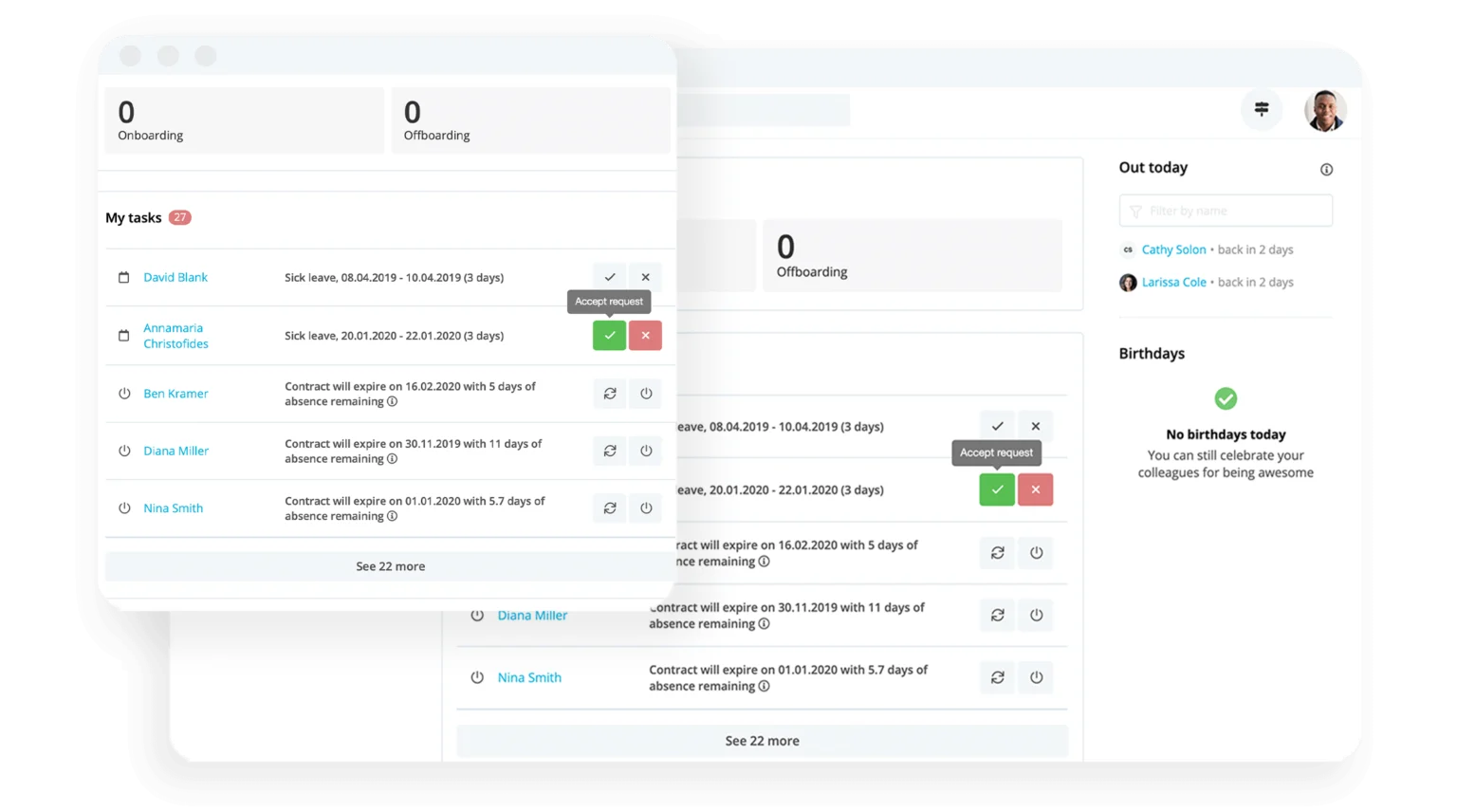Do Employees Have To Work Their Notice? A Guide for HR Managers

What are your obligations when notice is given by you or by an employee? This guide details what to know about notice periods in the UK, legal requirements for working during a notice period and the actions to take if an employee does not work their notice period.
Key Facts
Employees are expected to work during their notice period, with some notable exceptions.
If an employee does not work their notice period, they may be in breach of contract.
The required notice period length depends on several factors, including why the employee is leaving and how long they have worked for your company.
Notice period terms in the employment contract supersede regulatory requirements, as long as the terms are within the bounds of UK law.
6 Things To Know About Notice Periods in the UK
Be sure to keep the following in mind when an employee gives notice…
1. Employees Must Give Notice
According to UK law, employees who are resigning voluntarily must give one week’s notice if they have worked for your company for longer than one month. This notice period begins one day after giving notice.
Employees may give longer notice than one week, however, and you may require longer notice periods in your employment contract with the employee. In these cases, the contractual notice period is the required one – not the one-week statutory notice period required by UK law.
2. If You Give Notice to an Employee, It Must Be of a Certain Length
According to Acas, if you are dismissing an employee or if they were made redundant, you are required by statute to give them a notice period based on how long they worked at your company.
These notice periods are:
One week’s notice for employees who worked one month to two years
One week’s notice for each full year worked, for those who worked for two to twelve years
Twelve weeks’ notice for employees who worked for more than 12 years or more
3. How Notice Is Given, by Employee or Employer, Is Determined in Their Employment Contract
Stipulations are detailed in the employment contract signed by your employee. You can detail notice period requirements in your employment contract, as long as they are in line with UK employment law.
If a longer notice period is detailed in the contract, it overrides the notice periods required by law. Points such as whether to give notice in writing or verbally are stipulated in an employment contract as well.
4. You Can Ask an Employee Who Gave Notice To Leave Right Away
You do not need to keep an employee during their notice period. You are within your right to terminate employment immediately upon receiving notice. However, you may have to pay your employee for the notice period anyway. You may also send them on garden leave.
5. An Employee Cannot Typically Rescind Their Notice
While an employee may be able to retract their notice, they can only do so if you, as the employer, agrees to bring them back. For the most part, when notice is offered, and especially when it is considered binding as per an employment contract, it is final once offered.
6. Employees Are Entitled to Normal Pay During Their Notice Period
An employee may take sick leave, holiday and parenting-related leave during their notice period. They are entitled to their legally required pay in these circumstances. You can also require an employee to take any remaining holiday they have left during their notice period.
Do Employees Have To Work Their Notice Period?
Yes, employees have to work during their notice period. This is a standard stipulation laid out in the employment contract, and you can read your agreement with the employee for specifics.
There are some exceptions to this rule:
Garden leave. This is when employees are asked to not come to work during their notice period, but they receive salary and benefits as if they are working. You may opt for garden leave if you have no work for the employee to complete.
PILON.Pay in lieu of notice (PILON) terminates employment before the notice period ends, or without a notice period at all, but the employee is paid for the duration of the notice period anyway.
Fixed contracts. Notice periods do not apply if there is an end date stipulated in the employment contract.
Summary or constructive dismissal. You have the right to fire an employee without notice if they committed gross misconduct. Similarly, an employee can leave without notice if you are in breach of contract.
What Action Should You Take if an Employee Does Not Work Their Notice Period?
If an employee refuses to work during their notice period, they may be in breach of contract. In some circumstances, they can be taken to court for not coming to work during this time.
Frequently Asked Questions About Notice Periods
What Is a Standard Notice Period in the UK?
The standard notice period depends on the reason for termination and on the years (or months) served by the employee at the company. It could be as short as one week, as long as 12 weeks, or no notice at all, depending on the circumstances.
Do Employees Legally Have To Work Their Notice Period?
Yes, but there are some exceptions, which you can read about here.
Should You Conduct an Exit Interview During the Notice Period?
An exit interview should take place during an employee’s last few days at your company. This will likely overlap with your employee’s notice period. Check out our guide to exit interviews for tips and sample questions.
Navigating Notice Periods
With Personio, you can manage the on- and offboarding process with your employee through one central dashboard. Store records digitally, sign employment contracts, and keep records in one convenient location. Request your free demo to see how it works.
Disclaimer
We would like to inform you that the contents of our website (including any legal contributions) are for non-binding informational purposes only and does not in any way constitute legal advice. The content of this information cannot and is not intended to replace individual and binding legal advice from e.g. a lawyer that addresses your specific situation. In this respect, all information provided is without guarantee of correctness, completeness and up-to-dateness.

